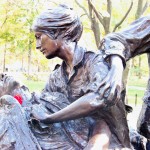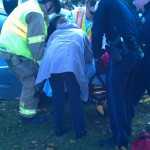by California Casualty | Firefighters |
This Guest Blog post is from the National Volunteer Fire Council. It is the featured article in our Firefighter & EMT News Resource: Flashpoint. To sign up to receive Flashpoint in your inbox once a month, click here!
Prevent Tragedy by Focusing on Behavioral Health in the Fire Service
Behavioral health. It’s a subject not often talked about in the fire service, but it affects every department and emergency responder in some way or other. In a culture that frequently brushes aside how they are feeling, this is a hard subject to tackle. Yet behavioral health issues are just as serious as physical health and safety issues, and can be just as deadly if left unaddressed.
Behavioral health can cover a wide spectrum of health issues for firefighters and emergency responders. These can include stress or anxiety, sleep problems, depression, post traumatic stress disorder, and addiction, to name a few. If left untreated, many of these issues could result in serious or life-threatening physical health disorders, such as heart disease or high blood pressure. Some could also lead to safety concerns as firefighters are less prepared to do their jobs safely and to the best of their ability if they are battling one or more of these issues. In many instances, untreated psychological conditions could lead to firefighter suicide, a tragedy for the firefighter, their family, the department, and the entire fire service community.
Firefighters and EMTs respond to the worst crises – fires, traffic accidents, family abuse, shootings, and more. At the same time, they are balancing the needs of the fire department, their families, other outside interests, and in the case of volunteers, full time jobs. Add to the mix unpredictable sleep schedules, potential for unhealthy eating habits and lack of time for proper fitness, and a culture where talking about one’s feelings or difficulties may not be accepted, and it is no wonder that emergency responders have an increased risk for having one or more behavioral health concerns.
What Can Be Done
It is critically important that department leadership makes behavioral health as much of a priority in the department as physical health and safety. Having resources available to firefighters and EMTs who need help, creating a culture where talking about issues is encouraged, and breaking the stigma associated with behavioral health issues can provide the support a firefighter needs to seek treatment and prevent tragic outcomes such as suicide.
Mandatory behavioral health training is a critical first step in adopting a proactive approach within the department. Having effective retirement planning procedures in place is also important as many firefighters suffer from stress, depression, loss of identity, or other negative effects when faced with leaving the fire service after dedicating their lives to it.
Other proactive measures include having an Employee Assistance Program available to all department members, having workshops where counselors or other qualified entities (CISM teams, chaplains, training officers) address potential issues and how to recognize signs and symptoms of distress, and encouraging all fire academies to include at least four hours of behavioral health training for cadets.
Resources Available
In recent years, the fire service has started to become aware of how serious behavioral health is for emergency responders. The Firefighter Behavioral Health Alliance (www.ffbha.org/) has collected information on 334 firefighters and 18 EMTs/Paramedics that have committed suicide. Departments have also begun to notice the wide range of negative outcomes that can result from ignoring behavioral health.
Fortunately, many resources are available to help departments and individuals address these issues and prevent potential negative outcomes.
Check out some of these resources- and click on the blue title to link to them!
National Fire Services Member Assistance Program
This toll-free hotline is available to all firefighters, EMS personnel, and their families who need immediate assistance with any problems affecting work or personal life, such as stress, depression, alcohol or drug addiction, financial management difficulties, critical incidents, relationship problems, work-related concerns, and more. Trained firefighters and counselors familiar with the fire and emergency services are available 24/7. Call 1-888-731-FIRE (3473) for help.
Firefighter Life Safety Initiative 13 – Behavioral Health
Initiative 13 of the National Fallen Firefighters Foundation’s Life Safety Initiatives focuses on the psychological wellbeing of firefighters and their families. The new Initiative 13 web site contains important resources, training, and research, including the new model for exposure to potentially traumatic events and stress aid for fire and EMS personnel, which recognizes that not everyone responds the same to traumatic events.
Suicide in the Fire and Emergency Services: Adopting a Proactive Approach to Behavioral Health Awareness and Suicide Prevention
This report from the National Volunteer Fire Council explores the various behavioral health concerns faced by first responders and identifies resources and best practices for mental wellness and suicide prevention.
Preventing and Coping with Suicide in the Fire and Emergency Services
The National Volunteer Fire Council, with support from the U.S. Fire Administration (USFA), developed this online training course focusing on suicide awareness and prevention. The course contains three modules that examines the signs and symptoms preceding suicide, highlights available resources for departments and individuals, and discusses the healing process when coping with a firefighter suicide. New students must create an account before registering for the course.
Behavioral Health Resources
The focus of the 2013 International Fire/EMS Safety and Health Week was behavioral health. This web site provides a lengthy resource and training listing to help firefighters and their departments focus on behavioral health and well-being.
by California Casualty | Educators, Firefighters, Nominate a Hero, Nurses, Peace Officers |
Please note – we’ve changed the voting requirements this month. In order to vote, you’ll have to create an account and log in to vote. Once you register, you’ll be taken directly to the voting page.
Click here register to cast your vote for April’s Hero of the Month!
Don’t want to register? You can still see the voting results – just click here.
Name: Jeff B.
Profession: Volunteer Firefighter/EMT
 In 2012, Jeff responded to a medical emergency. As the 34-year volunteer Firefighter and EMT loaded his patient into an ambulance, a nearby fire truck popped out of gear and started to roll. As the truck came towards them both, Jeff shoved his patient out of the way- saving her life as he took the entire brunt of the impact. The force of the hit pinned Jeff between the vehicles, breaking both femurs, two bones in one shin and his pelvis in two spots. After several surgeries and months of recovery, Jeff’s surgeon told him his injuries would prevent him from firefighting. He now continues to work full time as a director of sales.
In 2012, Jeff responded to a medical emergency. As the 34-year volunteer Firefighter and EMT loaded his patient into an ambulance, a nearby fire truck popped out of gear and started to roll. As the truck came towards them both, Jeff shoved his patient out of the way- saving her life as he took the entire brunt of the impact. The force of the hit pinned Jeff between the vehicles, breaking both femurs, two bones in one shin and his pelvis in two spots. After several surgeries and months of recovery, Jeff’s surgeon told him his injuries would prevent him from firefighting. He now continues to work full time as a director of sales.
https://www.youtube.com/watch?v=GgALcX84IpI
Name: Angela W.
Profession: EMT
Emergency Medical Technician Angela W. was diagnosed with an aggressive type of breast cancer on her birthday last year. Angela faced her diagnosis with bravery and determination, muscling through radiation and chemotherapy with resolve and an upbeat attitude. Angela even returned to work as an EMT while still undergoing treatment. Some days, she would head to work for 12 or 24-hour shifts straight from radiation therapy. Now a breast cancer survivor, Angela thanks her immediate family and her EMS family for their support and encouragement during her recovery.
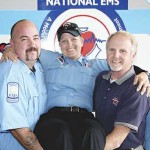
Name: September S.
Profession: Registered Nurse
September is a registered nurse raising three children while her husband is deployed in Afghanistan. As her husband puts it, “If superwoman did exist on this planet, her alter ego is September.” Watch the video below to hear directly from him what makes this Nurse such a hero:
Name: Steve H.
Profession: Educator
Steve is a Special Ed Behavioral Disorders teacher working with students of all ages. His coworkers describe Steve’s effect on his students as ‘amazing.’ Fellow teachers point out that his students are prepared and confident after his classes. They note the ‘happy changes’ that Steve helps his students make- changes that stay with them long after they have left his classroom. Steve not only teaches his students, he strives to make them feel important and needed. Outside of the classroom, Steve and his wife train guide dogs for the blind. So far, they have trained ten dogs- all of whom graduated on to the next level of training!
Name: Michael D.
Profession: Law Enforcement
In September 2012, San Diego County Sheriff’s Deputies were attempting to arrest a suspect when the suspect began shooting a high-powered rifle from a 2nd story window- hitting and wounding two officers. Off-duty SWAT Officer DeWitt, a member of the department’s Gang Suppression Team, happened to be driving by the scene in his SWAT vehicle when he noticed the disturbance. He immediately donned his vest, armed himself, and offered his service. Upon learning that an injured officer was still in the line of fire, DeWitt assembled a team, gave assignments, and proceeded in to retrieve the officer. The team reached the wounded officer, but realizing they were moving too slow, Officer DeWitt slung his weapon over his back–foregoing his own safety– to give full physical assistance and lessen the team’s time in the line of fire. While the team used DeWitt’s first aid kit to attend to the officer’s injuries, DeWitt noticed a woman and two small children running from the apartment complex in panic. Realizing that they were running into the line of fire, DeWitt left his position of safety to run and pick up one child as the woman carried the other to safety. DeWitt then returned to the apartment complex to make sure the second wounded officer was being cared for. He was nominated by his fellow law enforcement officers who note his extreme bravery, leadership, and judgment skills.
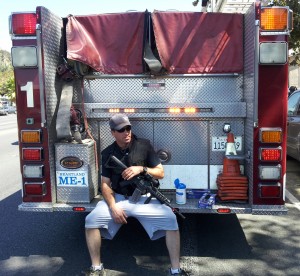
Officer Dewitt after the incident
Click here register to cast your vote for April’s Hero of the Month!
Don’t want to register? You can still see the voting results – just click here.
by California Casualty | Homeowners Insurance Info |
It’s officially the Holiday Season! The season of holiday lights, holiday shopping, holiday parties, and…
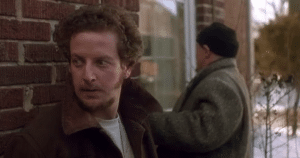
Home Robberies.

As you travel to visit family and friends this holiday season, be aware that the high rate of travel also leads to a spike in home robberies.
Here are some tips for keeping your home and possessions safe while you’re away:
- Install a quality home security system with burglary monitoring AND fire protection: The best defense against home robberies is a working security system. Be sure that you test your system before you head out of town to make sure you’re good to go. Also, double check that your security system has fire alarm capabilities. A fire doubles in size every 30 seconds, so the quicker your system can alert authorities, the better
- Keep your valuables out of clear site: Can you see your plasma TV from your front windows? Do you keep any jewelry near a window in your bedroom? Have a sweet sound system for all to see in your living room? Walk around the outside of your house and notice what you can see just by looking in. Before you leave town, move as many valuable out of view as possible. Close the doors of your entertainment center and put all jewlery in a locked, secure location
- Make mail & newspaper arrangements: Piled up newspapers and mail are a huge tip-off to would-be robbers. Before you leave town, either stop your mail and paper service or ask a trusted neighbor to pick them up for you. If you have a reliable neighbor you trust, this is a better option than alerting the post office that you are out of town. Again, the less people who know you are away, the better
- Take stock of your yard: Don’t keep any valuable sporting or gardening equipment outside while you’re out of town. Move everything that you can indoors or into the garage. Also, be aware of what you leave out by the trash. If you receive an expensive item, like a TV or a computer, for Christmas, don’t just leave the box by the trash- that’s advertising an expensive item in your home. Instead, break it down and bring it to recycling
- Remove a burglar’s cover: Tall and overgrown trees and shrubs are welcome hiding spots for criminals. Cut away any tall tree branches that reach upper story windows and protect against attacks from above. That doesn’t mean you need to cut down every plant in your yard. Just keep things manicured
- Do NOT broadcast your plans: No matter how tempting it is to brag about your upcoming getaway to your social media friends, keep your plans off the internet (until you return and show off your amazing pictures, of course!). The fewer people who know that you are gone, the better. Also, do not change your answering machine to say you are out of town. You never know who may ring you up while you’re gone, and you don’t want strangers to know that you are out
- Make your house look ‘lived in’: Take steps to make it look like someone is at your house. Here are some ideas:
- Ask a neighbor to park their car in your driveway. Anyone watching your house will see a car coming and going and be less likely to realize you’re away
- Ask someone to shovel your drive if it snows while you’re away
- Install outdoor and indoor lighting systems. Motion-sensor varieties are good for outdoor areas because they can stop robbers from using the cover of darkness to commit crimes. Timer varieties are good for indoors because lights turning on and off helps maintain the appearance that someone is home
- Double check your locks & entrances: Go around your house and check every door, lock, deadbolt and window. Make sure you have a solid perimeter. If your deadbolts are 10-15 years old, you need to make sure they can still withstand force. If not, replace them before you leave. For windows, look into using a dowel rod (long, skinny sticks sold at the hardware store). You can wedge them into the window frame to reinforce windows and give them more strength, as robbers cannot force windows open with a rod in place
- Don’t leave any hidden spare keys: Keep a secret key hidden on your property in case you or a family member gets locked out? Most people do. And that’s exactly why you should make sure you do not leave that key on your property when out of town. Robbers will check under rocks and around property for keys left ‘hidden’
- Tell neighbors you trust or law enforcement that you are leaving: While it’s important to minimize the number of people who know you are gone, do alert neighbors whom you trust or members of your trusted neighborhood watch program. That way, they can keep an eye out for any suspicious activity at your house. Also, look up the non-emergency number for your police department and let them know you will be leaving town.
- Be aware: Pay attention around your neighborhood. Is someone going door to door asking if a particular person is home? Has a car been parked suspiciously? These are both signs of people checking for unoccupied homes. Be alert to any behavior that is out of the ordinary and be sure to alert local law enforcement.
And last, but certainly not least, travel safely and ENJOY your holiday season with your loved ones!
by California Casualty | Nurses |
It was almost nine o’clock on Sunday morning and Joyce DeZutti was running late. Along with her daughters Giovanna and Antoinette and her friend Andrea Skillman, Joyce had just enjoyed a weekend of pampering at the spa and was headed back to the airport. Suddenly, her limo slowed and swung out to the side, veering out of the way to drive around a car accident. Out the window, the women saw two vehicles, one looking banged up and the other flipped over completely. Joyce turned to her daughter and asked if she’d seen an ambulance at the scene. As Giovanna responded that she had not, Joyce immediately yelled, “Stop now!” to the limo driver, lunging toward the partition to get his attention.
“There was no way that limo was going by that accident,” says DeZutti. “Even if I had to go through that partition, we were stopping. There was no question. We were supposed to be there.”
A series of very fateful events brought Joyce DeZutti to that Hershey highway that morning. Joyce, a psychiatric nurse at Linden Oaks Hospital, was more than 700 miles away from where she lives and works in Naperville, Illinois. About two months earlier, she was randomly picked out of more than 6,700 entrants as the winner of the California Casualty ‘Give a Nurse a Break Getaway.’ The grand prize was a two-day trip to the Hershey Hotel and Spa in Pennsylvania, a relaxing reward and much-deserved break from the daily grind of nursing. That morning, Joyce was headed back to the airport after a weekend of pampering and relaxation. If things had gone according to plan, Joyce would have missed the accident altogether.
“We wanted to get an early start. So we were really trying to leave. But my friend Andrea does Florence Nightingale presentations and she had her full costume with her and wanted to have pictures taken before we left,” remembers DeZutti. “So we got the pictures and got delayed by quite a bit. By the time we got in the limo, we had been rushed a bit and I was a little upset.”
As it turns out, Joyce DeZutti was exactly where she needed to be at exactly the right time. First responders had yet to arrive at the scene when the limo pulled up to the accident. Joyce, who was supposed to be getting a break from nursing life, suddenly felt herself thrust right back into the action.
“I threw my purse at my older daughter and said, ‘Get my kit out.’ And I ran to the scene, hollering out ‘I’m a nurse and my friend is too,’” says Joyce. After double-checking that someone had already called 911, she ran over to the flipped car. “I could see there was a woman hanging upside-down by her seatbelt. She was awake. I talked to her and said, ‘I’m Joyce and I’m a nurse.’”
The driver, an elderly woman, told Joyce she was having trouble breathing. The car smashed in around her and glass littering the asphalt, her seatbelt and coat making it difficult to breathe. So Joyce crawled in beside her.
“I had no problem getting in to her. I was laying on the ground next to the car with my hand reaching to her. She said she couldn’t breathe, which was no surprise with the angle her head was at,” recalls Joyce. “She had a big, heavy down pink coat, so I unzipped that and pulled her clothes away from her neck and put my hand on her chest and lifted up so she could lift her chin and she could breathe. I held her like that and just talked to her, holding her hand.”
While Joyce was worried about the patient, her daughter Giovanna was standing nearby worrying about her mother. Joyce had severely injured her arms while working with the horses she uses as therapy for her patients. Surgeries over the years had left pins and plates in her arms.
“I knew she could get hurt, too,” says Giovanna. “I have no doubt that if my mom didn’t have this problem with her arm, she could do it just fine because she’s a strong lady- mentally and physically. But I was concerned about her hurting herself and her being home and being in a lot of pain.”
But the adrenaline kept Joyce’s attention away from her own pain and focused on the patient. The woman asked Joyce to call her niece and asked if anyone else was hurt. As Joyce’s daughter Giovanna called the victim’s niece, firemen arrived at the scene. Meanwhile, Skillman, who works as nurse at the VA, explained to Joyce what was unfolding around her.
“It was like a Code Blue situation. Everyone has a job. I look back at what Joyce and I ended up doing, and it was sort of the same thing,” says Skillman. “She was doing the direct care and I was scoping out of the area and letting her know what the firemen were doing.”
A firefighter took Joyce’s place supporting the woman and Joyce slipped back out of the mangled car. But she wasn’t leaving.
“I said ‘I’m going to stay until they get her out of there,’’ remembers DeZutti. “I couldn’t leave not knowing. So I stayed.”
As firefighters used the “Jaws of Life” to cut away the passenger side of the car, a man in his fifties or sixties walked up to Andrea.
“He hands me a card of phone numbers to call and I grabbed the card, thinking they must be the patient’s phone numbers. He said they were and walked away,” says Skillman.
The man was the driver’s son. At the time, no one realized he had actually been in the car at the time of the accident.
“I asked if that was his mother and he said yes and that he was in there. He told me he had a seatbelt on. And a bystander confirmed he had helped get the man out of the car,” says DeZutti. So she went back into nurse mode. “I started talking to him really gently and I told him I was a nurse and wanted to check him. I did a head-to-toe and didn’t find anything tender and everything seemed fine.”
Firefighters put both occupants of the rolled car, the woman and her son, in C-collars on backboards and loaded them into the ambulance. But not before Joyce offered her final words of comfort.
“Joyce said she wanted to talk to her now that she was out of the car,” says Skillman. “But this patient was what my husband, a fireman, calls a ‘load and go.’ You don’t stick around. You put them in the ambulance and take off.”
So Joyce seized her moment, captured in this picture…
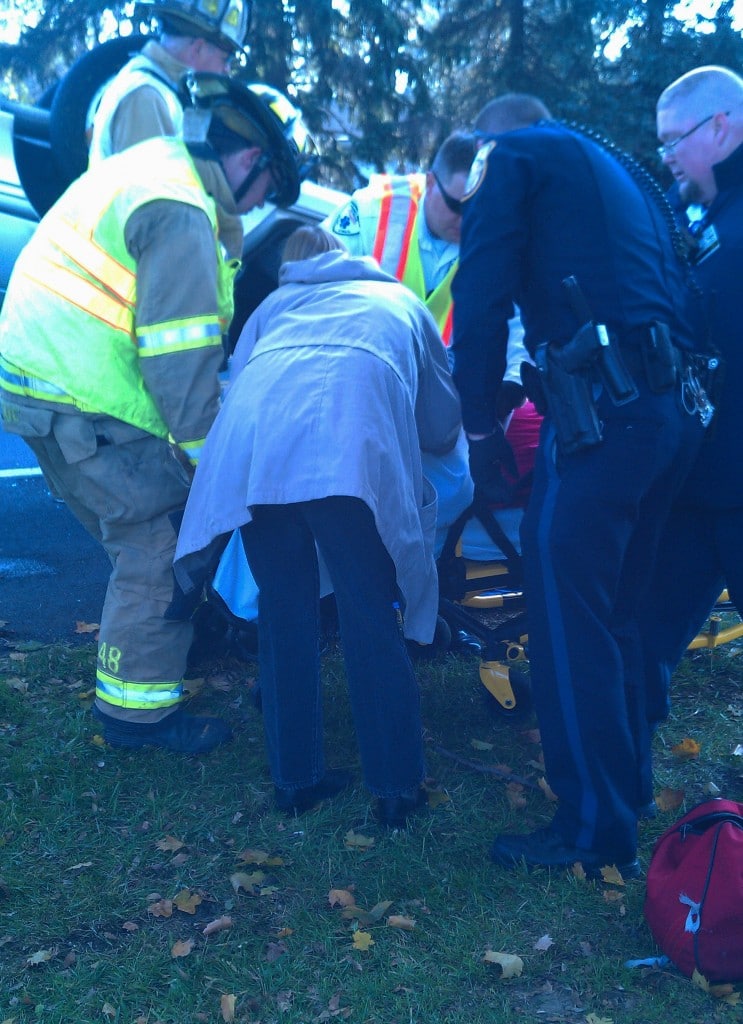 Photo Courtesy of Giovanna DeZutti, 2012
Photo Courtesy of Giovanna DeZutti, 2012
“I went to her and told her that her son was okay and that he was going to the hospital also to be checked over,” says DeZutti. “I said we had left messages with her family of where she was going to be.”
Joyce was the perfect person to pull up to the scene. A nurse for more than 30 years, she put herself through school by teaching taught EMTs and worked in a Trauma 1 Center and ICU. But to her daughter, Giovanna, up until that day she’d just been Mom.
“I’ve never seen my mom like that. My mom is my mom. My mom’s not a nurse to me,” says Giovanna. “But it was exciting watching her do it, because I’d never seen her doing anything like that. I’d seen maybe a call or two for a patient who was out of control, but this was totally different. It was a ‘bringing her back to the Emergency Room’ type of thing. She knew exactly what to do and what she was going to do ahead of time if this wasn’t working or that wasn’t working. It all came to her so fast. I could never do that. It was amazing. I see her more of a hero, now that I’ve seen her in action.”
But for Joyce, heroic action like this is the norm. This isn’t even the first time she’s stepped in to help an accident victim. When her kids were young, Joyce stopped to help another woman who was trapped upside-down in a rolled vehicle. She once witnessed a police officer get struck by a vehicle while directing traffic. She stopped to help him, too.
This story says something about nurses. We can try to give them a ‘break’ from their jobs. But stepping in and taking action to save lives is not just a part of their jobs. It’s a part of who they are.
Here’s where we need your help. When Joyce told us her story, we told her we would help her find out what happened to the woman and her son. But without knowing even the woman’s full name, although we believe her first name might be Jane, we’ve been unable to find her and check on her. If you know anyone in Pennsylvania, please pass Joyce’s story along and help us help this hero. After all, we figure it’s the least we can do to say ‘Thank You’ to this heroic nurse, Joyce DeZutti.
Do YOU know a Nurse, Firefighter, EMT, Peace Officer, or Educator Hero? Tell us about them!
To learn more about the Give a Nurse a Break Giveaway, click here.
Pictures from the Accident, The Hershey Spa, and the women in Washington D.C.:
All photos courtesy of Andrea Skillman and Giovanna DeZutti, 2012.














